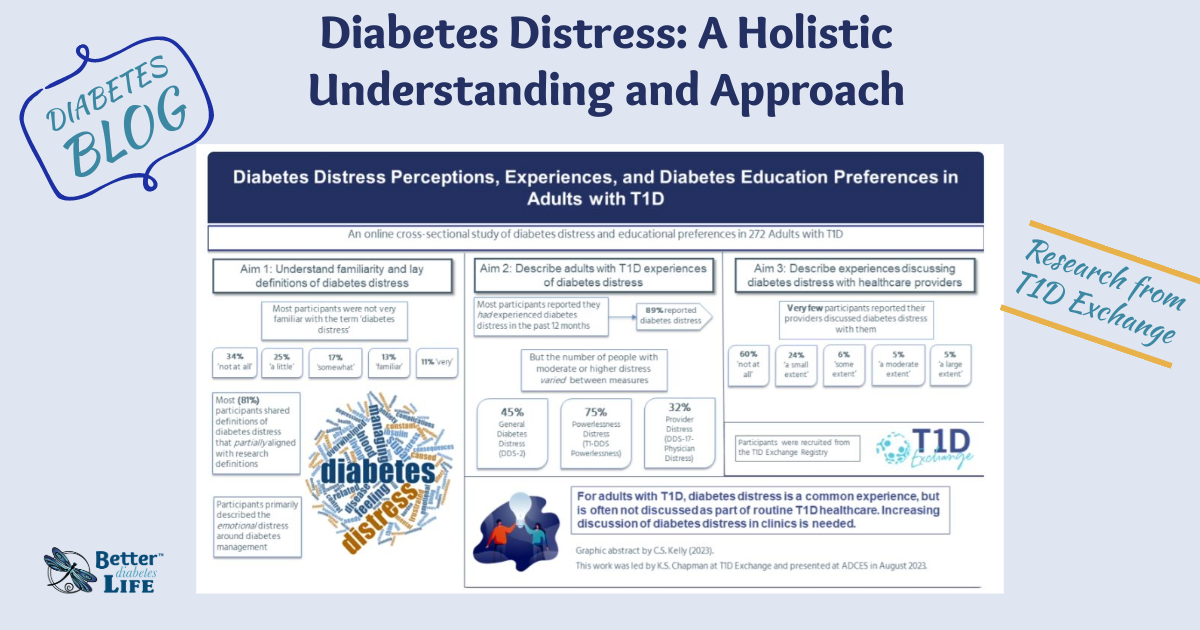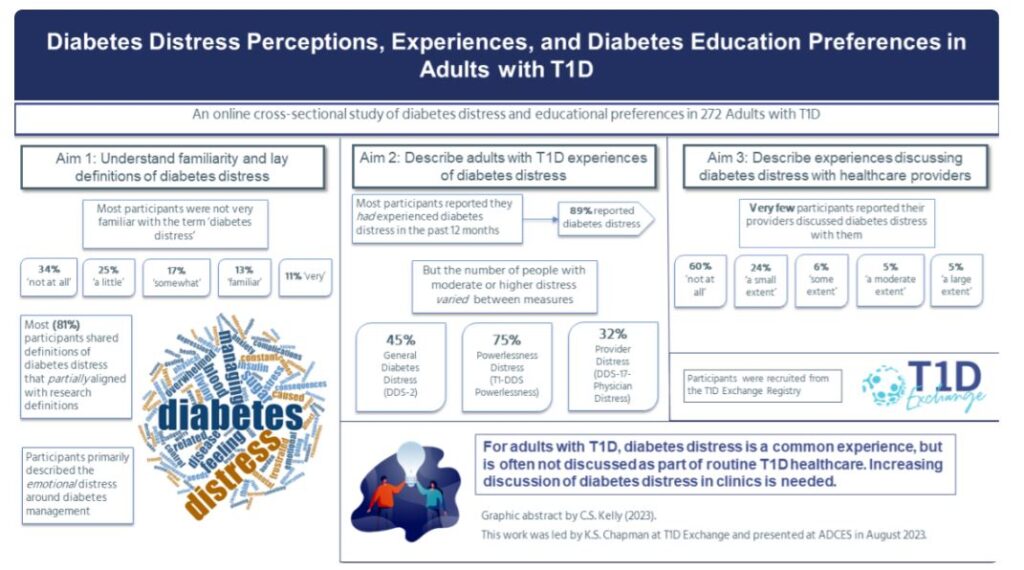For the past seven years, my mission has been to support individuals struggling with diabetes. In the medical community, terms like “psychosocial burden,” “burnout,” and “noncompliance” have been used to describe the challenges people face. However, a new term, Diabetes Distress, has emerged, accurately encapsulating the stress inherent in managing this condition. In my personal and professional experience with diabetes, this term sheds light on the condition without resorting to clinical labels or diagnoses, making it easier for others to understand the reality.
Diabetes Distress Study
Diabetes distress differs from typical motivating stress, known as eustress. Instead, it depletes energy, undermines confidence, and fosters feelings of isolation. A recent article by T1D Exchange shed light on this issue, revealing alarming statistics: 75% of participants felt powerless, and 90% had little to no interaction with healthcare providers regarding their distress. Those are epic numbers and illustrate the depth and limited resources to support this hardship. It seems almost everyone has it, yet no one is helping with it!
From my experience and research, diabetes management is more than just medication, diet, and exercise—it’s a constant negotiation, adjustment, and adaptation to a disease that doesn’t play fair. At its core, diabetes distress stems from a lack of safety—a feeling of being overwhelmed, trapped, and lacking control. Agency, the feeling of authority and control over one’s life, is essential in combating diabetes distress and improving one’s ability to “do” diabetes.
Recent Reason to Worry
A perfect example is the recent announcement that Humalog insulin is currently not available. For people living with diabetes, access to insulin is not optional. Knowing that access may be limited or you need to switch medication causes significant fear and worry – rightfully so! Since we can’t control much of the outside world, we need holistic tools to navigate these unpredictable (yet far too common) realities of living with diabetes.
When individuals feel empowered and safe, they are more resilient, mindful, and capable of making long term choices and finding solutions. By definition, when someone doesn’t feel safe they feel threatened on some level and the “fight or flight” response kicks in. In this state people become reactive, defensive and do almost anything to avoid the problem. Even if that problem is diabetes.
Empowerment Helps
Empowering individuals to regulate their nervous system, make choices, and feel supported is key to alleviating distress and improving glycemic management. Addressing diabetes distress requires a holistic approach encompassing mental, physical, and social aspects. By fostering peace in the mind, relaxation in the body, and a sense of support from others, individuals can better navigate the challenges of diabetes. Embracing technology and making lifestyle changes from a place of empowerment further enhances overall well-being and quality of life. When a person feels hopeful, capable, safe and in control – diabetes gets that much easier!
Distress Remedy
So what the point? Understanding and addressing diabetes distress is crucial for diabetes management and overall wellness. It goes beyond standard treatment and education. It is a whole-person approach that recognizes improved outcomes ONLY happen when the individuals making micro decisions 24/7/365 aren’t white-knuckling their way through life. Nurse coaching is a perfect adjunct to traditional endocrinologist and diabetes educators.
Nurse Coaches not only support changes aligned with each person’s unique needs, beliefs, and values but also integrate holistic modalities fostering well-being rather than merely relieving symptoms. By empowering individuals, fostering peace, and cultivating a supportive environment, we can minimize distress and enhance the quality of life for people living with diabetes.
Better quality of life sounds like a pretty worthy goal! I’m here to help those who are struggling, share my voice on this topic and create programs that redefine how people live with diabetes.
Join me in creating a movement for Diabetes Wellness beyond glucose control.
Be well,

email: patricia@BetterDiabetesLife.com



0 Comments